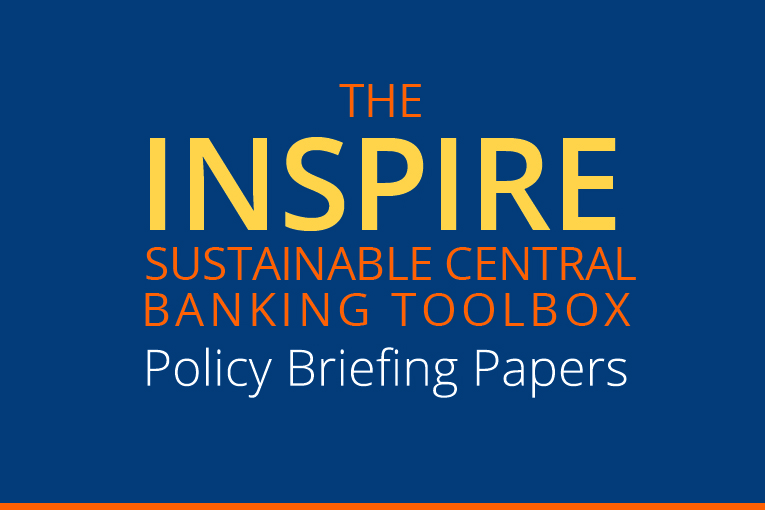Inclusive green finance: A new agenda for central banks and financial supervisors

Download
INSPIRE Central Banking Toolbox – Policy Briefing no. 12
Climate change and environmental degradation can have profound economic impacts, which may translate into micro- and macro-financial risks that need to be addressed by central banks and financial supervisors.
This paper shows that, through an integrated inclusive green finance (IGF) approach, central banks and financial supervisors can enable banks and supervisors to foster a just transition to an environmentally sustainable economy and avoid potential adverse effects on economically vulnerable groups.
Key messages
- Green finance and financial inclusion have mostly been treated by central banks and financial supervisors as two distinct and largely unrelated agendas, despite meaningful overlaps between these two areas.
- Key target groups for financial inclusion tend to be disproportionately exposed to the impacts of climate change and environmental degradation, while also playing an important role in adapting to and mitigating environmental change.
- Against this backdrop, central banks and financial supervisors can combine green finance and financial inclusion policies in an integrated inclusive green finance (IGF) approach.
- By accounting for equity concerns in the design of green policies, this policy approach can avoid any potential adverse effects on economically vulnerable groups and enable central banks and financial supervisors to foster a just transition to an environmentally sustainable economy.
- By bringing together the complementary aims of green finance and financial inclusion, they can help to improve the livelihoods of low-income households and the business prospects of micro, small and medium-sized enterprises (MSMEs) while simultaneously contributing to climate change adaptation and mitigation, minimising associated risks for the financial sector.
- The instruments that central banks and financial supervisors can use to leverage IGF for climate change adaptation and mitigation can be divided into market-shaping [indirect] policies and direct interventions.
- A range of IGF policies have already been adopted by the banks and supervisors, and there are emerging examples of best practice.
This paper is part of the INSPIRE Sustainable Central Banking Toolbox, which is designed to support central bankers and financial supervisors in calibrating monetary, prudential and other instruments in accordance with sustainability goals as they address the ramifications of climate change and other environmental challenges. The papers have been written and peer-reviewed by leading experts from academia, think tanks and central banks and are based on cutting-edge research, drawing from best practice in central banking and supervision.

